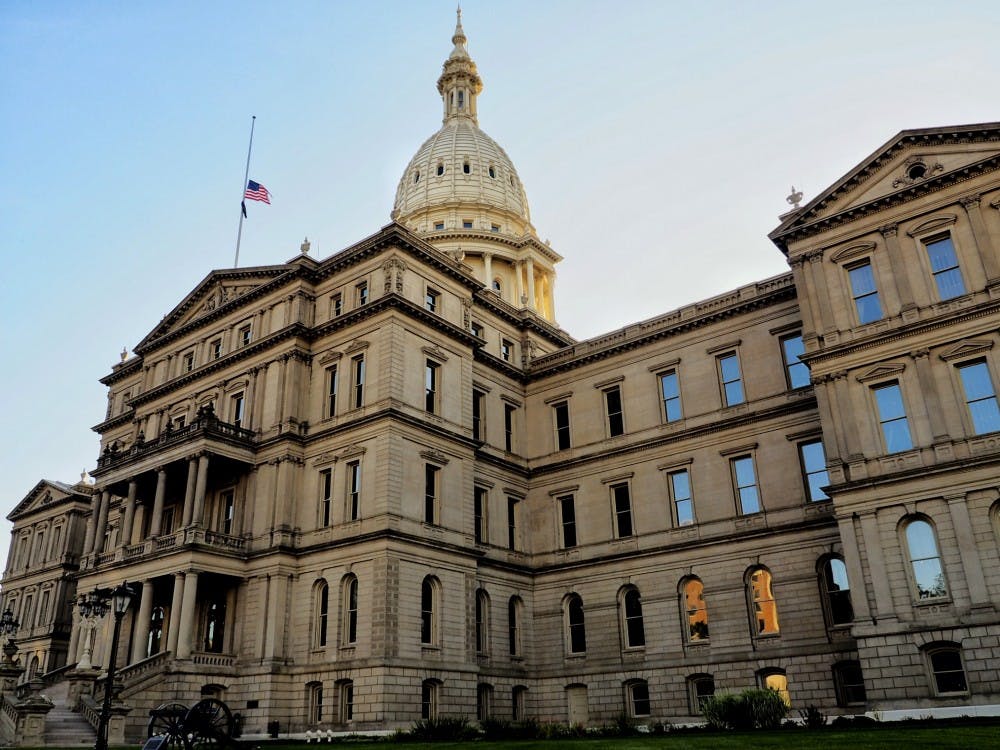The explosion of sexual abuse allegations against former Olympic doctor, Michigan State physician and now-convicted sexual predator Larry Nassar created waves in the lawmaking world.
Since allegations first entered the public sphere in 2016, laws and policies have been implemented on state and federal levels in response to Nassar's abuses.
In 2018, a slew of bills inspired by the Nassar cases were introduced in the Michigan House and Senate that aimed to protect sexual assault victims and punish officials that failed to respond to allegations of sexual assault adequately.
In February 2018, a package of 10 bills were introduced to the Michigan Senate. The bills were a direct response to Nassar’s abuses and were supported by survivors.
The Michigan Senate passed the bills and several of them were signed into law in September of that year, but some are still sitting in committees.
SB 871 and 872 dealt with the statute of limitations. SB 871 eliminated the statute of limitations on second-degree criminal sexual conduct offenses and extended the statute of limitations by 30 years for third-degree criminal sexual conduct offenses, or when the victim turns 48.
SB 872 extended the statute of limitations on civil lawsuits regarding sexual assault cases to 10 years.
HB 5658 allowed judges to admit evidence of a defendant's prior sexual assault allegations as evidence in an ongoing case.
HB 5660 would increase the sentence for possession of child sexually abusive material to 10 years in prison.
HB 5798 expands who can make a victim impact statement when a defendant is sentenced. Before this bill, only the parents or guardians of a victim who is a minor could give a victim impact statement. This bill allows statements from a victim’s spouse, children, siblings, grandparents and others.
“Michigan still ranks dead last in providing access to the justice systems for survivors, and we still have the shortest of statute of limitations in the nation,” State Rep. Julie Brixie (D-East Lansing) said. “We can do a lot better.”
More than 30 bills related to Nassar's abuse were introduced to the House that year. Several of the bills were heavily influenced by the inquiry into MSU, as the house committees responsible for these bills requested all documents related to the MSU investigation into complaints against Nassar from 2014-17.
Lawmakers that read the documents released harsh statements aimed at MSU's mishandling of complaints against Nassar.
“After reviewing the evidence, there is absolutely no doubt that Michigan State University failed to adequately protect students and patients on campus,” State Rep. Klint Kesto (R-West Bloomfield) said in an April 2018 press release. “That is a failure to every survivor of sexual assault. As the report outlines, we will be actively pursuing a broad range of legislative reforms to protect people across Michigan from sexual assault.”
State Sen. Kim LaSata (R-Bainbridge Township) also commented in the press release, saying, “Our inquiry confirmed this was an institutional failure with multiple lapses in policy, procedure, and culture at Michigan State. ... That must change. We have worked hard to identify a variety of tailored reforms, through policy and our state budget, which will protect our children on campuses across Michigan moving forward.”
Two budget bills introduced in 2018 also dealt with the Nassar fallout.
SB 857 would expand funding for campus safety programs and sexual assault prevention programs. It also expanded Title IX requirements for university faculty and staff.
HB 5571 would cut state funding for universities by 10% if the university did not adopt anti-sexual assault policies, including sexual assault prevention courses for students and requiring Title IX complaints to be received by all governing officials of the university.
Neither bills have been made into laws at this time.
In April 2019, State Rep. Sara Cambensy (D-Alger) introduced HB 4383, a bill that would make it illegal for an individual with power to prevent someone below them from reporting a Title IX violation. The bill is currently in the Government Operations Committee.
Support student media!
Please consider donating to The State News and help fund the future of journalism.
In May 2019, State Rep. Beth Griffin (R-Van Buren County) introduced HB 4376, which would make physical therapists, physical therapist assistants and athletic trainers mandatory Title IX reporters. The bill is currently in the Committee on Government Operations.
On the federal level, in July 2019, two U.S. Senators, Jerry Moran (R-Kan.) and Richard Blumenthal (D-Conn.) introduced the Empowering Olympic and Amateur Athletes Act of 2019.
The bill, which is in the Committee on Commerce, Science and Transportation, would “provide for congressional oversight of the board of directors of the United States Olympic and Paralympic Committee and to protect amateur athletes from emotional, physical, and sexual abuse, and for other purposes.”
The bill is a result of a nonpartisan investigation into Nassar and the lack of transparency from the U.S. Olympic Committee.
State Rep. Julie Brixie (D-East Lansing) said she thinks there’s room for improvement in how the state government responded to the Nassar cases.
“We should be a national leader in (survivor support), and I hope to get some folks together,” Brixie said. “I hope to see us doing some discussions about that. I think we can do a lot better than what we've done.”
Discussion
Share and discuss “How Nassar’s cases, MSU’s response made waves in lawmaking” on social media.








